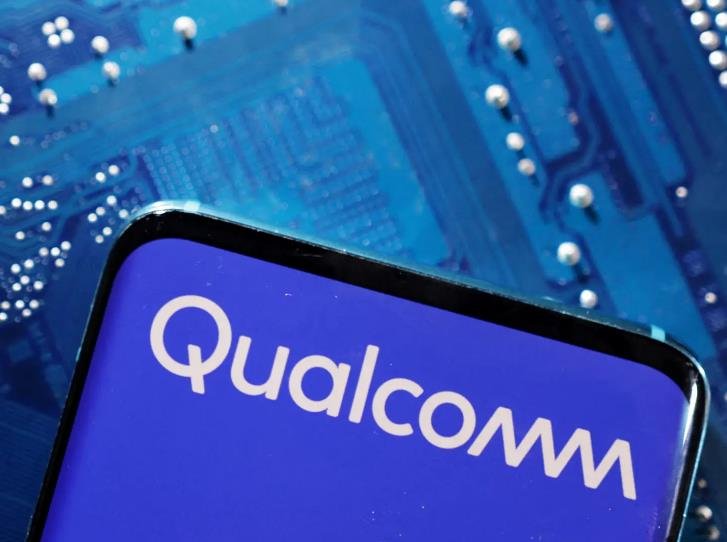At Qualcomm’s annual conference this autumn, the chip giant unveiled a shift in its presentation style. Unlike the grand theatre events of the past, this year’s keynote was held in a more intimate setting, allowing CEO Cristiano Amon to connect closely with the audience. This change mirrored the growing influence of generative AI, which Amon highlighted as a transformative force in the tech industry.
The AI Revolution in Smartphones
Generative AI is not just a buzzword at Qualcomm; it’s at the heart of their latest innovations. Amon emphasized that Qualcomm’s Snapdragon processors are evolving to incorporate AI in ways that fundamentally change how we interact with our devices. “It speaks our language, understands our intent,” Amon explained. “That’s how we’re going to see the evolution of computing.”
Imagine a smartphone that intuitively knows what you need without you having to navigate through multiple apps. Instead of opening a shopping app and then a banking app separately, you could simply tell your phone what you want, and the AI handles the rest. This seamless interaction is set to redefine user experience, making smartphones more personalized and efficient.

Transforming User Experience with AI
Qualcomm’s vision for AI integration goes beyond just faster processing speeds. It’s about creating a more intuitive and responsive device that anticipates user needs. Here’s what we might expect:
- AI Front Ends for Apps: Every app could have an AI interface, allowing users to perform tasks through voice or text commands effortlessly.
- Automated Transactions: Paying bills or checking account balances could be done through simple interactions with your phone’s AI.
- Smart Scheduling: Planning your day could become easier as your phone manages your calendar and suggests optimal routes or transportation options.
Expected Enhancements in Snapdragon Processors
| Feature | Current Snapdragon Chips | Future Snapdragon Chips |
|---|---|---|
| AI Processing Power | High | Significantly Increased |
| Energy Efficiency | Optimized | Enhanced |
| Connectivity Options | 5G Ready | Advanced 6G Capable |
| Security Features | Robust | Next-Gen AI Security |
| Integration Capabilities | Standard AI Integration | Deep Learning Integration |
These upgrades aim to support the sophisticated AI functionalities that Amon envisions, ensuring that smartphones remain at the cutting edge of technology.
Challenges on the Road to AI Integration
While the prospects are exciting, integrating advanced AI into smartphones is not without its hurdles. Qualcomm must navigate several challenges to make this vision a reality:
- Hardware Limitations: Ensuring that processors can handle complex AI tasks without compromising battery life or device performance.
- Privacy Concerns: Balancing AI capabilities with user privacy, preventing misuse of personal data.
- Developer Adaptation: Encouraging app developers to adopt AI front ends and rethinking traditional app structures.
Amon acknowledged these challenges but expressed confidence in Qualcomm’s ability to overcome them. “Our job is making the impossible inevitable,” he stated, underscoring the company’s commitment to innovation.
The Competitive Landscape and Market Implications
As Qualcomm pushes forward with its AI ambitions, the competition in the smartphone market is intensifying. Companies like Apple and Samsung are also heavily investing in AI, striving to offer more intelligent and user-friendly devices. Qualcomm’s advancements could set new standards, prompting rivals to accelerate their own AI developments.
Consumers stand to benefit from these innovations through more personalized and efficient device experiences. However, the race to integrate AI effectively will require continuous innovation and strategic investments from all players in the market.
Public and Industry Reactions
The tech community has responded enthusiastically to Qualcomm’s announcements. Industry analysts predict that AI integration will be a key differentiator in the coming years, shaping consumer preferences and driving sales.
Users are excited about the potential for more intuitive devices, but they also remain cautious about issues like data privacy and the reliability of AI-driven functions. As Qualcomm leads the charge, the company’s ability to address these concerns will be crucial in gaining widespread adoption.
Sentiment Overview
- Optimism: High expectations for AI enhancing user experience.
- Skepticism: Concerns over privacy and data security.
- Interest: Strong curiosity about the practical applications of AI in daily use.
- Caution: Watchfulness regarding the implementation and reliability of new technologies.
Looking Ahead: The Next Five Years
Qualcomm’s roadmap indicates a significant transformation in smartphone technology driven by AI. Over the next five years, we can expect:
- Advanced AI Capabilities: More sophisticated AI functions integrated into everyday tasks.
- Enhanced User Interfaces: Devices that better understand and anticipate user needs.
- Greater Efficiency: Processors optimized for AI tasks, improving performance and battery life.
- Expanded Ecosystems: Seamless integration with other smart devices and services, creating a cohesive digital environment.
Cristiano Amon’s vision paints a future where smartphones are not just tools, but intelligent companions that enhance every aspect of our lives.








